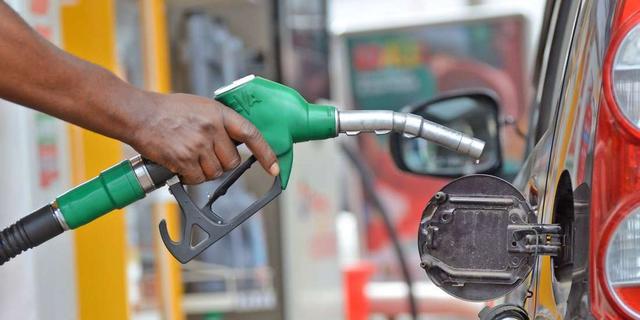Fuel consumers are likely to receive a significant reduction at the pumps beyond the 15 pesewas per litre cut announced by the Minister of Finance.
Following the government’s intervention, the Ghana Chamber of Bulk Oil Distributors (COBD) has engaged with stakeholders, including the Bank of Ghana (BoG), to explore additional relief for customers.
The Chief Executive of the COBD, Senyo Hosi, foresees “a better position on petroleum prices” by April 1 following measures by the BoG to address the cedi rate which is a major factor in skyrocketing fuel prices.
He was confident that the full implementation of ongoing proposals would lead to a reduction in fuel “close to a cedi on a litre or half a cedi on a litre”.
In an interview with Joy News, Mr Hosi said the apex bank had released about $160 million to the entire energy sector, which will help address some of their challenges.
What is the current situation?
From January to date, the average ex-pump price of diesel and petrol has increased by 57% and 45% respectively.
With rising prices of fuel products, the Ghana Private Road Transport Union (GPRTU) is expected to engage the government this week over their proposal for transport fare increment after fuel prices at the pumps skyrocketed by more than 10 per cent in the past weeks.
An increase in transport fares will lead to an increase in the cost of goods and services barely a month after transport fares were increased by 15%.
Even though supply bottlenecks have caused a surge in prices on the international market due to ongoing conflicts between Russia and Ukraine, the situation has been compounded by the depreciation of the Ghana Cedi against other major currencies.
According to Finance Minister Mr Ofori-Atta, the cedi has seen a 14% depreciation against the US dollar this year which has affected the cost of the product.
Crude oil on the international market shot up as high as $130 per barrel following the Russia-Ukraine conflict.
At the beginning of 2022, petrol and diesel traded at an average GH¢6.30 per litre at the pumps.
By March 2022, fuel prices crossed the GH¢ 8 per litre mark but are now being sold as high as GH¢ 11 at some pumps, causing a surge beyond 18 per cent in the second pricing window of March.
What can be done to address the problem?
Despite the country producing oil in large quantities, the lack of refineries has prevented the country from enjoying lower prices of finished products.
As of September 2020, crude oil production capacity in Ghana was 196,000 barrels per day.
However, Ghanaians continue to buy fuel at exorbitant prices due to importation and taxes slapped on the commodity.
The Ranking Member on Parliament’s Energy Committee, John Abdulai Jinapor, has entreated the government to revamp the Tema Oil Refinery (TOR) to process Ghana’s crude to meet local demands instead of relying on the importation of refined oil.
Additionally, he suggested that the Bulk Oil Storage and Transportation Company Limited (BOST) should hold strategic reserves which could be used to ease supply challenges whenever necessary.
According to him, revenues from fuel levies should be enough to defray some of the cost to cushion consumers from bearing the brunt.
Mr Jinapor is not the only person to make such proposals to the government to address rising fuel prices.
COPEC-Ghana Executive Secretary, Duncan Amoah, had told The Ghana Report:
“We have a local refinery that we could have leveraged to get some fuel security at lower prices, but unfortunately, we don’t think there is a political will to refurbish the Tema Oil Refinery”.
Mr Amoah observed a fully functional refinery would cut the logistical cost, which adds to the price build-up by exporting crude to Europe to be refined before importing back to Ghana.
“They need to get TOR back on stream, and the need for political interference to be stopped holds the key for all for us,” he underscored.
Additionally, he cited the failure of BOST in executing its mandate.
Mr Amoah explained that BOST is supposed to store huge volumes of fuel and release to the market to level prices and check shortages “without overstretching the already burdened Ghanaian taxpayer”.
However, “we do not see that function of BOST, and they are now focusing on trading…which was not the purpose of the BOST Act but to hold strategic stock”.
Additionally, Mr Amoah wants the government to scrap taxes that add up to the fuel cost on the market.
This is because there are about 12 different taxes and levies on petroleum products, which adds up to almost 40% of the fuel price.
These taxes include the Energy Debt Recovery Levy, Road Fund Levy, Energy Fund Levy, Price Stabilisation and Recovery Levy, Sanitation and Pollution Levy, Energy Sector Recovery Levy, Special Petroleum Tax and Primary Distribution Margin, BOST Margin, Fuel Marking Margin, Marketers’ Margin and Dealers (Retailers/Operators) Margin.
Mr Amoah wants parliament to place a ceiling on fuel taxes because no legislation specifies what is permissible.
Consequently, “any Finance Minister can slap any amount of fuel taxes and if parliament goes ahead to accept without scrutiny Ghanaians will be doomed”.
The legislation would cap fuel taxes, and finance ministers would be compelled to look for revenue from other sources once the threshold is triggered.
“Consumers should not be taxed beyond 25 per cent of the cost of fuel products,” he said.
Meanwhile, the Finance Minister, Ken Ofori-Atta, is expected to provide the details of some measures approved by President Nana Akufo-Addo to revive the economy.
Mr Ofori-Atta is expected to make the announcements after consultations with key social and economic stakeholders in the coming days.



